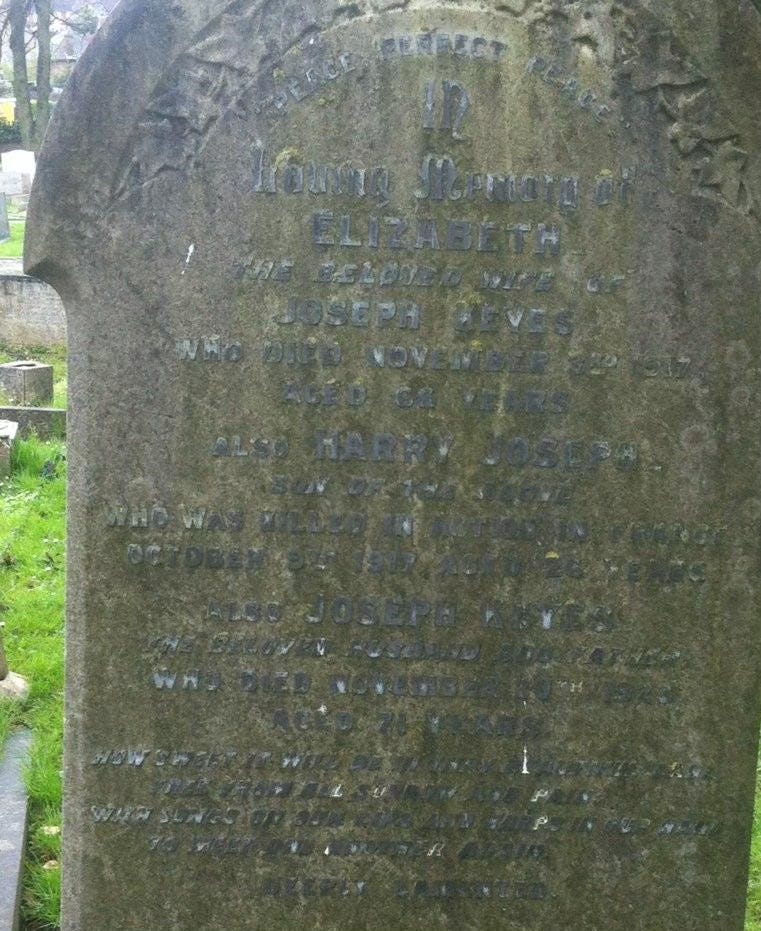The Life and Sacrifice of Harry Joseph Keyes: A Fallen Soldier of the Great War
Genealogy Matters Atomic Tuesday Challenge: MILITARY MARVEL
Harry Joseph Keyes was born in 1891 in Grays, Essex, the seventh of eight children to Joseph and Elizabeth Keyes. His father worked as a cement laborer, and the family lived in Grays, where Harry followed in his father's footsteps, working as a laborer in the local cement industry by 1911. At the outbreak of World War I in 1914, Harry's life, like many others, was forever altered.
Harry enlisted in the Army and served with the 1/4th Battalion of the Gloucestershire Regiment, having originally joined the Essex Regiment in 1916. He was part of a draft sent to France in June 1917 and joined the Gloucestershire Regiment in July. By the time of his deployment, he had completed some training in trench warfare. Harry’s military records show he was entitled to the British War Medal and Victory Medal, indicating he went overseas after the reorganization of the Territorial Force in March 1917.
On October 9, 1917, during the Third Battle of Ypres (Passchendaele), Harry tragically lost his life at the age of 23. The 1/4th Gloucestershire Regiment was involved in an advance under heavy fire, and despite initial progress, they encountered significant resistance, including machine gun and sniper fire. Harry's unit faced major casualties, and he was killed in action. He is commemorated on the Tyne Cot Memorial in Belgium.
Harry's family, including his father Joseph, received a gratuity of £7 following his death, indicating that Harry may have been conscripted under the Derby Scheme. The war diary of the 1/4th Gloucestershire Regiment records the intensity of the battle and the challenges faced by soldiers, including the difficulty of communication and casualty collection due to heavy enemy fire. Harry’s sacrifice, along with that of many others, remains part of the enduring legacy of the Great War.
You can read more of Harry’s story here:



